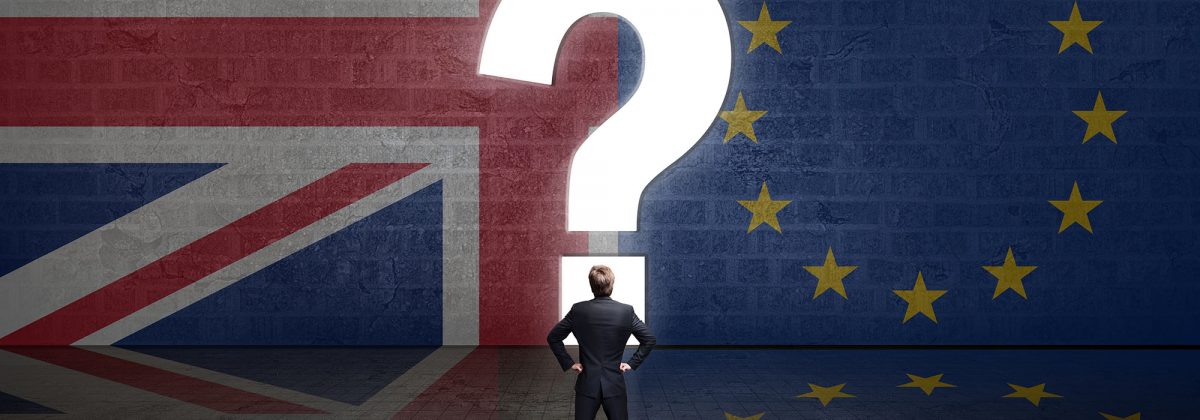A Brexit No Deal

On June 23, 2016, over 30 million people voted in a referendum to decide whether the United Kingdom should leave or remain in the European Union. The option to leave won by 51.9% to 48.1%. On March 29, 2017, UK Prime Minister Theresa May submitted the Article 50 withdrawal notification to the European Union. It gave a period of two years to the UK and the European Union to negotiate an agreement regarding Britain’s exit from the EU.
The UK and the EU agreed on March 19, 2018, to an adaptation plan spanning 21 months, which has been called a “Soft Brexit.” It will help if a formal agreement doesn’t take place before the deadline of March 29, 2019.
The European Court of Justice ruled that the UK could officially cancel its Brexit application unilaterally. Approval from no other EU organisation is needed for the withdrawal.
What is a No Deal Brexit?
A No-Deal Brexit is a term used to describe what might occur if the UK withdraws from the EU without reaching any exit agreement. The UK, led by Prime Minister Theresa May, and the EU agreed on a draft of the withdrawal agreement. Getting the approval of the House of Common on the proposed plans seems difficult at present for Ms. May. Ireland and the other EU nations have started preparing for a situation where the UK exits without a deal.
If a withdrawal agreement is passed by the House of Commons, an adaptation period will begin at end of March 2019, when the deadline set by Article 50 of the Lisbon treaty ends. Every trading contract and relation between the UK and EU will remain the same until December 2020 and possibly until December 2022, for future negotiations.
If the UK exits without any agreement being reached, there will be no transition period and all current regulatory and trading relationships between the EU and UK will end immediately. It will push the UK into international isolation and could lead to economic and political crisis as well for the nation.
Where Does the Brexit Deal Stand Today?
The current deal between UK and EU includes two parts:
- Withdrawal Agreement: This is a 585-page, legally binding text that will decide the terms and conditions of Brexit. It contains issues such as debt on the UK, what will happen to EU citizens living in the UK and UK citizens living in EU states. It also provides a solution to avoid the return of a physical Irish border.
- Future Relations: This is a 26-page, not legally binding text. It draws a map of the long-term relationship between the EU and UK across various sectors, such as defense, security and trade.
Consequences of a No Deal Brexit
The Economy
The impact of a no-deal Brexit would be terrible for the economy. Some reports indicate a further decline in the already disappointing growth, which might even end in a recession.
Indications are that the Pound Sterling would fall in a confused no-bargain situation. In its November Inflation Report, the Bank of England says that a smooth change to the deal would lead market participants to anticipate “a smaller hit to UK real incomes than currently, causing the exchange rate to appreciate.”
In any case, the question is by what amount, and when? Markets won’t sit tight for March 2019 to respond. Rather, the sterling would take a hit if no clear deal occurs. Many expect the pound sterling to promptly decline at the same rate it did after the referendum in 2016. Analysts also expect a more than 10% drop in the value of the currency in case of a no-deal because the referendum drop was not based on any real financial disturbance.
Inflation
A declining GBP will increase inflation. Inflation would reach its peak due to the immediate disruption caused to trade and relocation, which would lead to a fall in the supply of goods and services, thus pushing up prices. The sudden addition of tariffs on trade and cross border movement will push inflation and the declining pound will only make it worse.
With an increase in trade barriers, the prices of raw material will rise, and lower immigration will lead to higher demand for staff from companies, decreasing productivity in the short term. According to experts, the consumer price index will be at 2.9% in 2019 with a no-deal, rising to 3% in 2020. Inflation is expected to rise to 2.7% in case of a No-Deal Brexit.
Trade
In the absence of a deal, the UK will return to the rules established by the World Trade Organisation on trade. External tariffs would be paid by the UK on the export and import of goods, pushing prices further up. Some products manufactured in the UK will be rejected in the EU and might require new certification and authorisation. Manufacturers dependent on raw materials from the EU might relocate to the EU to avoid the tariffs and delay on materials.
Around 33% of the UK’s food supply is dependent on the EU. Delays at customs will create food shortages in the UK. Production has already been affected by drought and the heat wave caused by global warming. Trading tariffs will be imposed, as high as 74% on tobacco, 22% on squeezed orange juice and 10% on automobiles. This will drive up the price of imports and inflation, while lowering the standard of living.
Individuals
The UK would be able to control the movement of people and set rules for EU residents. The EU will be able to do the same for British citizens. This could lead to long delays at international borders. The future of 1.3 million UK nationals living in the EU and 3.7 million Europeans living in the UK and their right to work and live will be uncertain. A No-Deal Brexit will just make things worse, since there is currently no solution for these fundamental issues.
Laws
EU laws will become null and void in the UK, following Brexit. The nation will be no longer be under the jurisdiction of the European Court of Justice, although it will still be bound to the European Court of Human Rights.
Transfers
The UK pays £13 billion to the EU annually. With Brexit, the nation will no longer have to pay that sum. The EU will suffer losses, since it will no longer be able to benefit from subsidies and no-tariff trade. The issue of the border between Northern Ireland and the Republic of Ireland would also remain unsolved.
With the time for negotiations almost at an end, Britain is unlikely to get what it wants. All signs appear to point to a No-Deal Brexit for now, which could have severe consequences.
Reference Links
- https://www.economist.com/leaders/2018/11/24/the-truth-about-a-no-deal-brexit
- https://inews.co.uk/news/brexit/no-deal-brexit-what-meaning-uk-leave-uk-consequences/
- https://www.irishtimes.com/business/economy/brexit-explained-what-would-a-no-deal-brexit-mean-1.3665568
- https://www.politico.eu/article/how-no-deal-brexit-would-hit-uk-economy/
- https://www.theweek.co.uk/fact-check/95547/fact-check-what-a-no-deal-brexit-really-means




